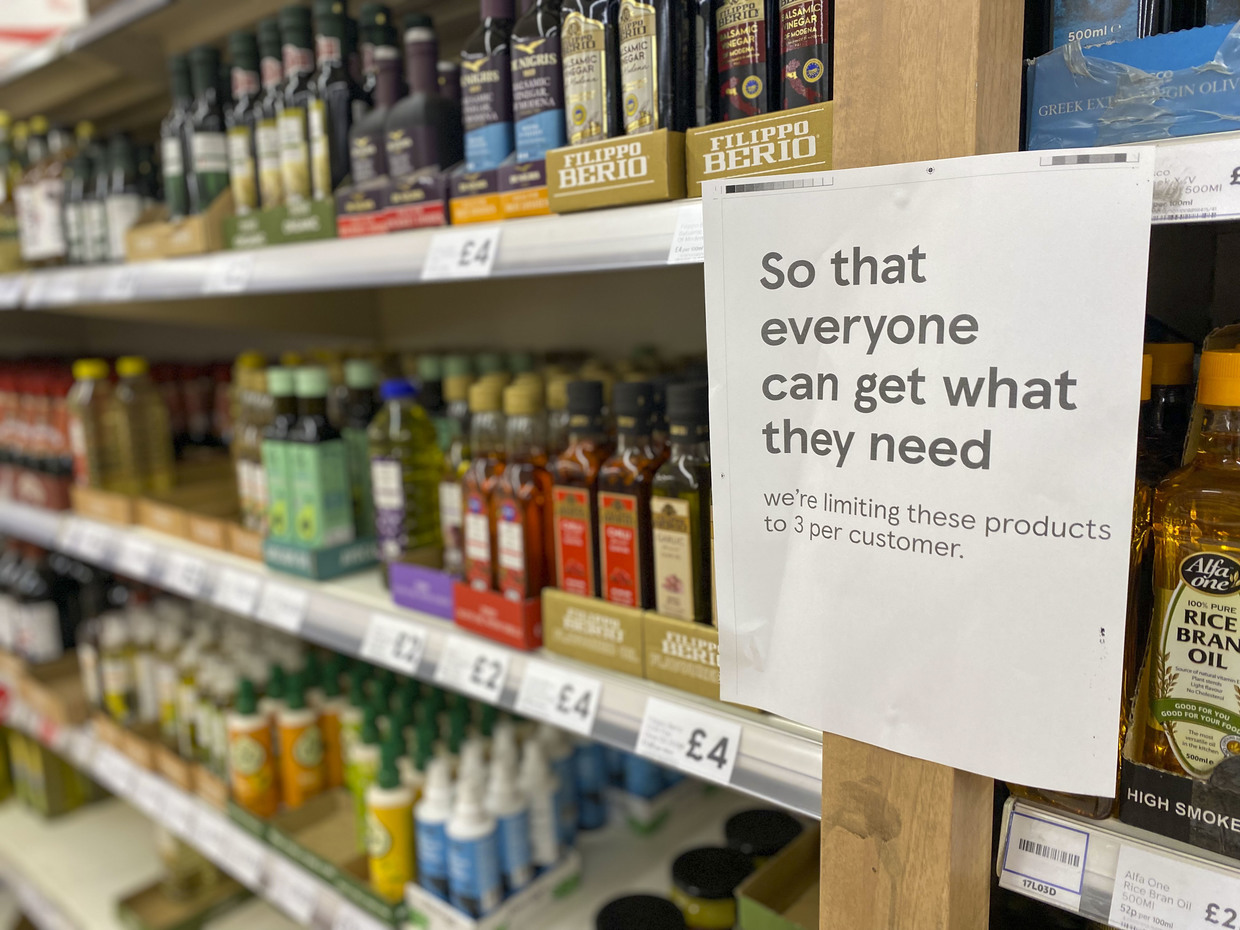Supermarkets limit cooking oil purchases due to Ukraine crisis

Major British supermarket chains have limited how much cooking oil customers can purchase, a move attributable to shortages and subsequent changes in consumption patterns resulting from the conflict in Ukraine. According to the UK food regulator, the former Soviet republic is responsible for a “significant proportion” of UK sunflower oil supply.
Tesco, Morrisons and upmarket chain Waitrose all confirmed to the media having introduced a cap on the number of cooking oil bottles a customer can purchase.
“To make sure all of our customers can continue to get what they need, we've introduced a temporary buying limit of three items per customer on products from our cooking oil range,” Tesco said in a statement, reassuring customers that there is “a good availability of cooking oils in stores and online.”

Waitrose and Morrisons took a similar step but limited each customer to just two items.
According to the United Nations Conference on Trade and Development, Ukraine and Russia combined are responsible 53% of global trade in sunflower oil and seeds and 27% in wheat.
As a result of the military conflict, the price of sunflower oil in the UK jumped 60% from £1,130 per tonne in February to over £1,800 in March, according to analysts at Mintec. The shortages of the oil have prompted manufacturers and restaurants to change recipes and substitute with other types of oil.
The consumption changes have prompted cooking oil prices, which had been increasing even before the conflict in Ukraine began, to skyrocket when hostilities got underway. By the beginning of April, prices were 22% higher than a year ago, The Guardian reported, citing NielsenIQ analysis.
The urgent need to replace sunflower oil with other types of oil has prompted the UK Food Standards Agency to warn consumers of the increased risk of food allergies. In late March, the regulator said that “it is highly unlikely that industry will be able to re-label products as quickly as oil substitutions may occur, which could lead to the presence of mis-labeled products on the market.”
Meanwhile, the conflict in Ukraine is not the only factor contributing to shortages of cooking oil supplies. On Friday, Indonesian President Joko Widodo announced a ban on exports of palm oil, the world’s most consumed edible oil.
Considering that Indonesia accounts for more than a third of global vegetable-oil exports, the move is set to severely exacerbate the already-squeezed supply of cooking oil around the world, with developing nations set to be most affected.













